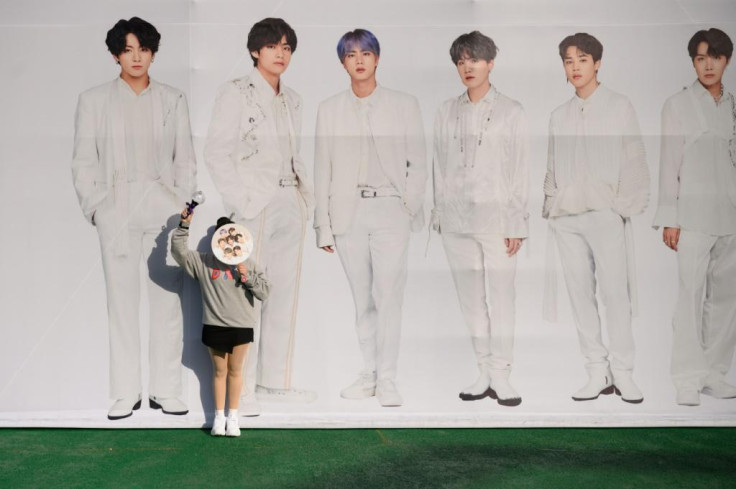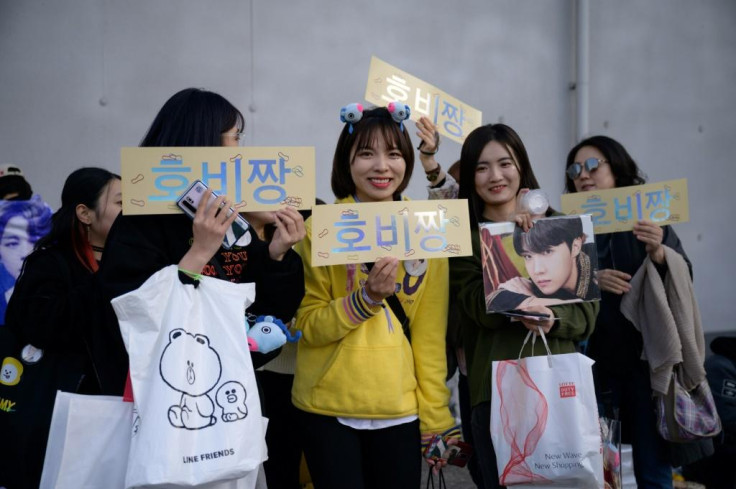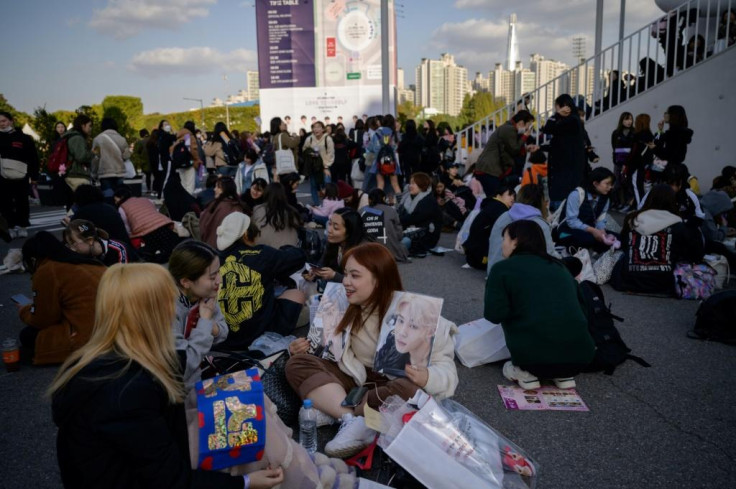K-pop's BTS finish world tour with millions generated
Their world tour -- which ran from August last year -- drew a total audience of more than two million
Tearful and screaming by turn, tens of thousands of BTS fans gathered in Seoul for the finale of the boyband's lucrative world tour, some flying thousands of kilometres to pay homage to their idols and swell their backers' bulging coffers.
The septet's global prominence reached unprecedented heights this year, becoming the first K-pop group to top charts in the US and Britain and performing a string of sold-out shows in Los Angeles, Paris, and London's Wembley Stadium.
The floppy-haired musicians, all in their 20s and often sporting earrings and lipstick, appeal to a generation comfortable with gender fluidity.
They connect with their largely female fans -- collectively known as ARMY -- by opening up about their struggles through their music and on social media, which they flood with selfies and personal messages.

"I love them so much and they are one of the most important things in my life," said Milena Marunova, 20, who travelled from Russia to Seoul for this week's concert, her voice trembling with excitement.
That depth of engagement is key to their appeal enduring, according to CedarBough Saeji, a specialist in Asian languages and cultures at Indiana University Bloomington, contrasting it to rapper Psy's 2012 megahit Gangnam Style.
"Psy didn't have a fanbase, he had one viral hit song," she said. So when the follow-ups "weren't quite what the audience was looking for, they moved on. But BTS has many very loyal fans."
She added BTS' music was well produced with excellent videos, "and performed by incredibly handsome and charismatic young people".
BTS dolls
That popularity has enabled a hugely profitable variety of spin-off products and activities.

Their merchandise ranges from pens and notebooks to pillows and blankets, and they collaborated with Barbie manufacturer Mattel for BTS dolls, which the US toymaker said lifted its international sales by 10 percent.
They are starring in a TV drama slated to air next year, their agency Big Hit Entertainment said, and South Korea's largest gamemaker Netmarble launched the first mobile game featuring the band in June, with a sequel already in the works.
The group are also brand ambassadors for companies like Coca Cola, FILA and Hyundai Motor.
Their world tour -- which ran from August last year -- drew a total audience of more than two million at 62 shows in 23 cities, according to Big Hit Entertainment.
The entertainment company said it posted record revenues of more than 200 billion won (US$171 million) in the first half of 2019, and with only a handful of other artists on its books, the vast majority is likely to have been generated by BTS.

But the band's wider economic impact is far larger.
BTS are worth 4.1 trillion won to the South Korean economy annually, the Hyundai Research Institute said in a 2018 December report, boosting the image of South Korean products abroad and driving tourism.
The country has long relied heavily on China and Japan for visitors, and was hit hard in March 2017 when Beijing banned group tours in a row over the installation of a US missile defence system.
Recently, an intensifying dispute between Seoul and Tokyo over wartime history has also slowed growth of Japanese visitors, government figures show.
But nearly 90 percent of overseas K-pop fans in 111 countries said they would like to visit South Korea in future, according to a study published this week by the Korea Tourism Organization.
Incoming K-pop fans "expanded the age groups and diversified the nationalities of visitors that were likely to return to South Korea", said Kim Sung-eun, who led the KTO study.
'Very rich'
Hours before Tuesday's concert fans crowded into the 44,000-capacity Olympic Stadium, laughing and posing in front of giant BTS photo walls.
Many of the foreigners attending were making their first pilgrimage to South Korea.
Nurul Nadiah, 28, a financial analyst from Malaysia, said as well as historic palaces, she had visited fan hotspots -- including the House of BTS, a multi-storey pop-up store in the posh Gangnam district that sells more than 200 types of BTS goods.
"I think I'm already broke," she said.
Big Hit Entertainment declined to specify how much of its turnover was generated by BTS, nor the band's own earnings.
K-pop is notorious for the power of its management companies. They often create their bands, control almost every aspect of their lives, and retain comprehensive rights to their output.
However, BTS members' benefited from songwriting and producing royalties, said Saeji, and would receive greater shares of modelling and endorsement contracts -- and their "phenomenal" merchandise sales -- than for music alone.
"They are certainly very rich at this point," she said. "Keeping such a very successful group happy is hugely important for Big Hit."
Copyright AFP. All rights reserved.
This article is copyrighted by International Business Times, the business news leader





















